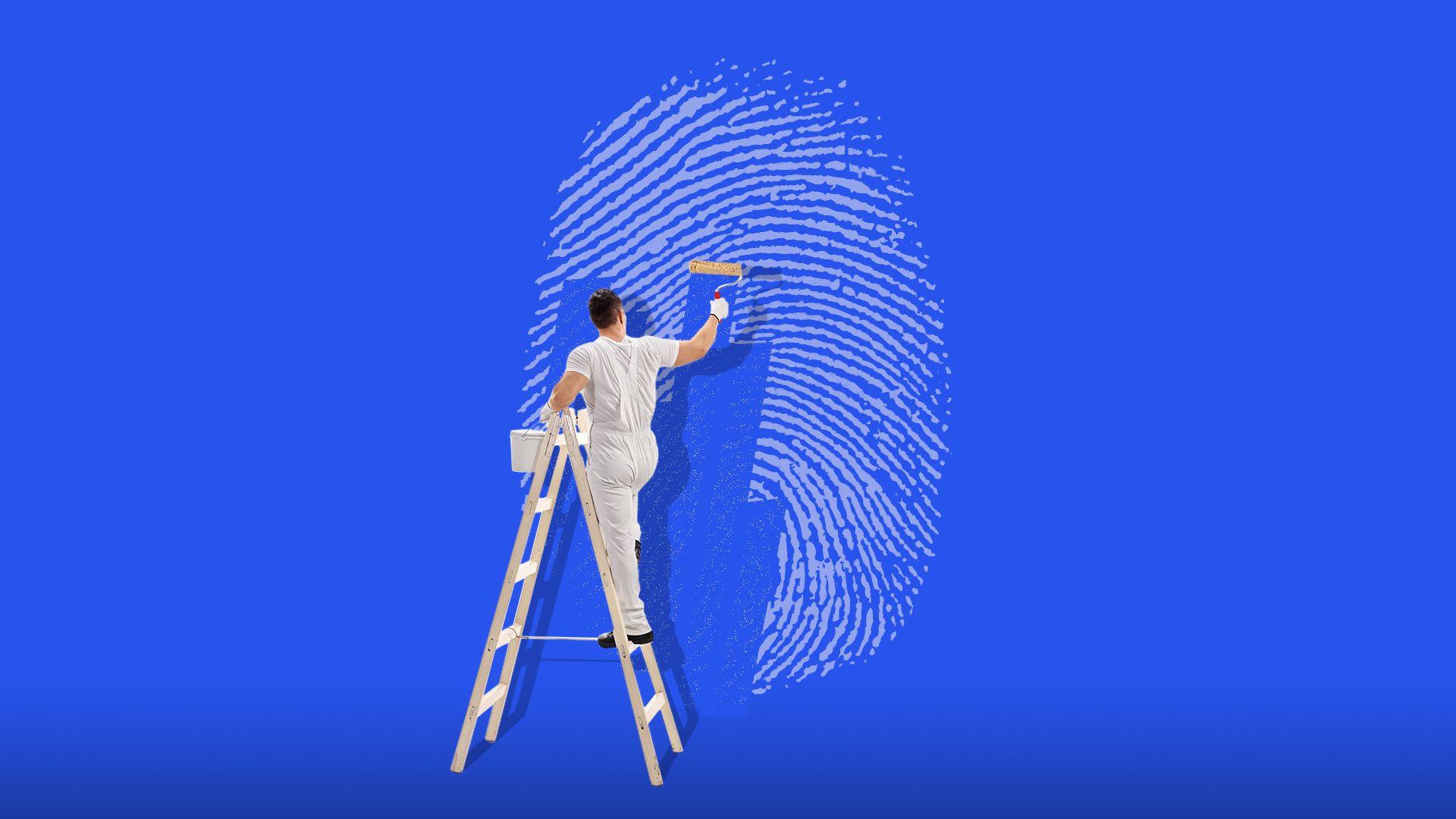Exclusive: Americans wary of giving up data to fight coronavirus
Add Axios as your preferred source to
see more of our stories on Google.

Illustration: Aïda Amer/Axios
Most Americans don't want app makers or the government to scrape their data to combat the coronavirus pandemic, a new survey finds, in the face of public- and private-sector efforts to do just that.
Why it matters: Efforts to fight the pandemic are putting new pressure on privacy protections, particularly around health information, but this study's results shared with Axios suggest the U.S. public isn't ready to give them up.
By the numbers: Some 54% of Americans surveyed from March 21–27 by research firm Oliver Wyman Forum said they'd be comfortable sharing health status data, such as whether they'd recently visited a doctor, in the interest of monitoring public health.
- But that was the only type of data that a majority of those polled said they'd be OK sharing. Roughly a third of respondents said they'd accept the gathering of data on airline travel patterns or of publicly available biometric data, such as mass temperature scanning across groups of people.
- Even fewer wanted their wireless location data tracked, either on an individual basis or in aggregate, to assess social distancing practices and possible coronavirus transmissions.
Respondents were selective about who they'd be willing to hand data to.
- 55% said they'd want a positive COVID-19 test result shared with public health authorities like the CDC and WHO, compared to 35% and 27% for local and federal government officials, respectively.
- Just 21% would want a positive result shared with an app that discloses where people are infected through anonymized or aggregated data, while 9% would share it with an app that discloses the names of people infected.
- Similar trends — a majority being comfortable sharing data with health officials, and just a sliver of people being OK sharing it with apps, social networks or startups — held for those asked about sharing their general health status.
- The U.S. results roughly tracked with those found from polling people in other countries, including Germany, the U.K., Spain and Singapore.
- But respondents in Spain and Singapore, which have both taken aggressive steps against the outbreak to vastly different degrees of success thus far, were notably more open to sharing data with apps.
The big picture: The findings come as a variety of government and private actors are already racing to tap data to track and contain the spread of the coronavirus.
- The New York Times on Thursday released a nationwide map of Americans' recent travel patterns using wireless location data sourced from data analysis firm Cuebiq.
- Another data outfit, Unacast, is similarly tapping cell-phone location data to produce a running Social Distancing Scoreboard ranking how well people in different states are doing at avoiding one another.
- IBM, Google, data startup SparkBeyond and smart thermometer provider Kinsa Health are among the companies that have also sought to use Americans' data to map coronavirus infections, hotspots and symptoms.
- And the Washington Post recently reported that federal officials have expressed interest in harvesting location and other data from tech companies to track and battle the spread of coronavirus.
Be smart: So far, these efforts to track the virus draw on publicly available information, like aggregated location data, that most Americans may not realize they're already giving up — and largely don't want to give up, based on the survey results.
- But using any and all data possible may become an uncomfortable necessity in the face of a spiraling catastrophe following early U.S. failures to test widely and keep people apart. That has privacy advocates worried.
What they're saying: "Technology can and should play an important role during this effort to save lives, such as to spread public health messages and increase access to health care," read a joint Thursday statement from more than 100 civil society groups including Amnesty International, the Center for Digital Democracy, EPIC and Human Rights Watch.
- "However, an increase in state digital surveillance powers, such as obtaining access to mobile phone location data, threatens privacy, freedom of expression and freedom of association, in ways that could violate rights and degrade trust in public authorities — undermining the effectiveness of any public health response."
What's next: Oliver Wyman Forum intends to repeat its survey to see if people's attitudes shift as the pandemic advances.
- "As we see people's sentiments evolve, it usually takes more time ... to be able to process things beyond their daily needs and internalize how their attitudes are shifting," Oliver Wyman Forum chief operating officer Ana Kreacic told Axios.
Methodology: Oliver Wyman Forum surveyed 1000 Americans and "a little over 500 people each" in the U.K., Germany, Spain, Australia and Singapore, balanced by age and gender.
Editor’s note: This story has been clarified to show that the survey was conducted by Oliver Wyman Forum (not Oliver Wyman).
